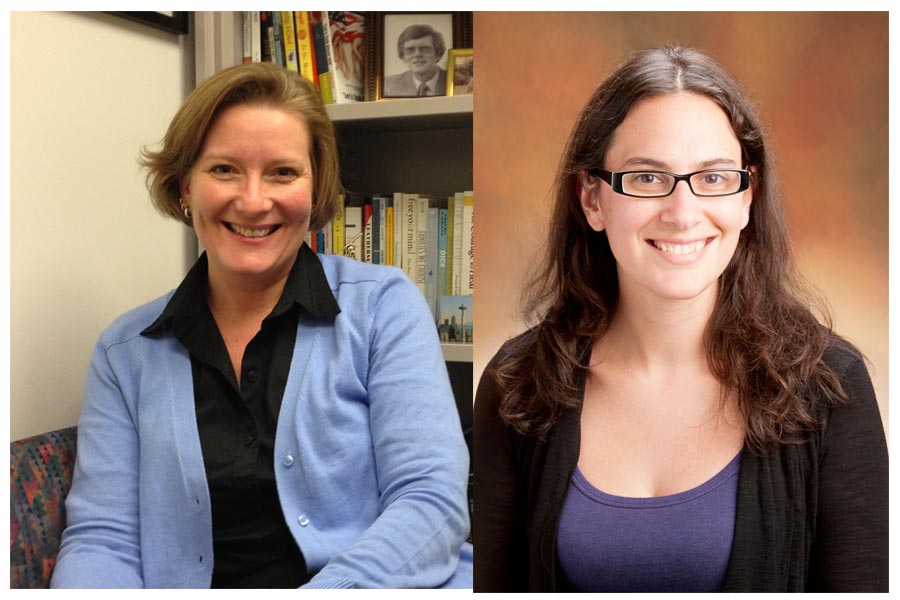The Children’s Hospital of Philadelphia was recently acknowledged by the Human Rights Campaign as a 2014 LGBT Healthcare Equality Leader. According to the HRC, which selects the equality leaders via its Healthcare Equality Index, CHOP earned top scores in nondiscrimination and training criteria that illustrate the hospital’s
dedication to inclusive care for LGBT patients and their families.
Nadia Dowshen, a pediatrician and adolescent-medicine specialist, has been working at CHOP in some fashion for almost 15 years. Dowshen is also the director of the Adolescent HIV Clinic and co-founder of the new Gender and Sexuality Development Clinic. Dowshen described what she does on a daily basis to strive toward LGBT health-care equality.
“A big part of what I do is educate various care providers and trainees at different levels — nurses, doctors, social workers, med students — about how to provide the best care for all adolescents,” Dowshen said. “A big part is understanding psychosocially what’s going on with them and the appropriate health care they need, and teaching folks to talk to all adolescents in a way that supports people of all genders, sexes, races and ethnicities.”
Another major player in the momentum of CHOP as an LGBT health-care leader is Linda Hawkins, a family-services specialist who focuses on LGBT competency throughout the hospital, who has been working at CHOP for almost 17 years.
“On the day-to-day, I look at where we’re doing well and where we’re not doing well,” Hawkins said. “I get feedback from families and patients on what their experiences were like and determine how things could be even better.”
Hawkins and Dowshen strive for excellence in their daily work, and both women are committed to creating equitable, inclusive care for all LGBT adolescents.
“I believe we need to move from a world of being LGBT-friendly to a world of being LGBT-competent,” Hawkins said. “Put up the rainbow only if you really know what you’re doing about it.”
CHOP certainly knows what they’re doing for LGBT health care: In January 2014, CHOP opened the Gender and Sexuality Development Clinic, which aims to help transgender, gender-variant and gender-nonconforming youth up to 21.
Dowshen said the clinic has had a significant impact on CHOP as a whole.
“I think there’s been an impact in that there’s more awareness that there is a team that will help and treat these young people, whereas before people may have not known what to do,” she said. “We’re thankful for the Mazzoni Center for doing all that they do. It’s wonderful that we now have another option in addition to that in this sub-specialty medical environment.”
The opening of the Gender and Sexuality Development Clinic and the recognition from the HRC in the past year is exciting and important for CHOP, Hawkins said, noting it caps years of CHOP’s work for LGBT health-care equality.
“CHOP has been pretty continuously open and active in supporting LGBT patients and families, so the acknowledgment this year shouldn’t diminish previous decades of good work,” Hawkins said. “This is not completely new for CHOP.”
Highlighting this sentiment is the fact that CHOP not only met the minimum standards that the HRC sets in its Healthcare Equality Index, but well-exceeded them.
“A couple of years ago, the anti-discrimination policy for employees was rightfully expanded to include sexual orientation and gender identity and expression,” Hawkins said. “What followed more recently was our patient bill of rights to rightfully include those policies as well, so I feel like we are safeguarding and advocating for LGBT patients and their families by having this modeled through our employment process and our family culture.”
The most important impact from that work, Dowshen said, has been on LGBT youth.
“I’ve dedicated my career to working with marginalized youth, many of whom are LGBT, and unfortunately they face many challenges to their health because of stigma in society and often not having the support of their family and communities,” she said. “We’re now in a place at CHOP where we’re able to start to address these issues. This is a really exciting time.”
Hawkins echoed Dowshen’s sentiments.
“I’ve been an advocate for LGBT youth probably my entire life, but definitely since moving from Seattle to Philly, where I started to see first-person what disparity is when it comes to LGBT youth,” Hawkins said. “For me, being able to support doctors and nurses and administrators to have a space where all LGBT children, youth and parents can feel safe is really a dream come true. This is professional and personal for me because of the youth I’ve been able to serve, and in many ways I hope this increase in acknowledgment in CHOP’s good work will bring more youth through our doors to assure them health and wellness. It’s basically the best thing ever.”
Matty Bennett is a second-year MFA candidate in creative writing at Virginia Tech.
